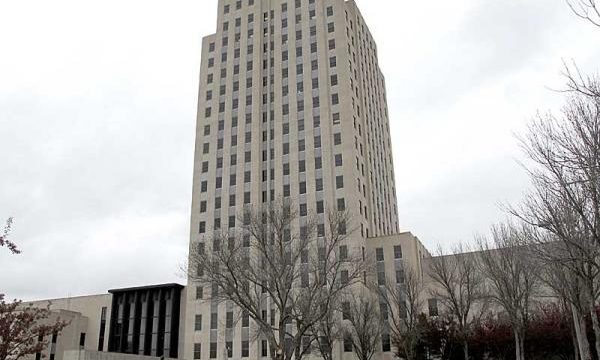Dorso Column: There's Still A Lot On The Plate For Legislators

There is still a lot of legislation to be debated in Bismarck.
I doubt the abortion debate will moderate much over the next few months. I applaud the two men who have banded together, although of opposing views, to put the issues in front of the citizens of North Dakota. Once they have the Secy. of State’s approval it will not be that hard for them to collect the signatures necessary to put the three issues on the ballot.
As I predicted Planned Parenthood would prefer to run directly to the US Supreme court. It is obvious that they think the black robed members of the court are better qualified to make these types of decisions than a vote of the citizens of the state. By the way who are the main financial supporters of Planned Parenthood? As I said in an earlier post I am pro life but the outrage I feel over a national advocacy group trying to force their will upon the State of North Dakota is just as strong. I would accept the decision of the citizens of the state more readily than a group of jurists who over the years have trod upon the fifty states right to govern themselves.
While many are focused on the abortion issue there is other legislation that also deserves attention.
The final disposition of Majority Leader Carlson’s constitutional revision for the governance of the university system is going to cause a lot of controversy. Here again the sides have been drawn and there are few surprises. Former college presidents, including former Mayville State President Ellen Chaffee, are against any change in the status quo. That certainly comes as no surprise.
I don’t have the answer as to how the ND University System should be governed but I am quite sure the present model doesn’t work. NDUS would like you to focus on its direct appropriations from the general fund but what we need to know is what do they do with all of the money they acquire from all sources?
It is obvious that college presidents don’t want much oversight from the legislature or anyone else. Why that would be is the question that needs to be answered?
Whether Dr. Shirvani is the qualified agent for change is one of the straw horses the education establishment would like you to focus on. The real issue is who is going to control the hundreds of millions the system costs. Marching out the accreditation issue is another straw horse. Who but the advocates of the status quo have marched that out? Is it a legitimate concern? I would prefer to compare governance structures in other states before accepting the assertions of the education community.
The accrediting agencies are made up of educators who I suspect have a bias toward the independence the college presidents want to retain. The accreditation agencies are as full of politics as any organization I have ever dealt with. Would they really put their colleagues out of work if there were to be a change in the governance of NDUS? I suspect something far less dire would occur.
Lastly, now is when the final versions of the appropriations bills will start to come to light. Many of the bills funding state agencies are what I call “slam dunks.” Once the issue surrounding salaries and benefits are settled the numbers are plugged into each budget. There may be some controversy over the number of employees requested but that about does it. The Secy. of State, the Agriculture Department, Insurance Commissioner, Securities Commissioner, Banking Commissioner etc., are usually pretty straight forward and passed out first. The agencies such as the Department of Transportation, Department of Human Services, and North Dakota University System along with a few others take more scrutiny. Those large budgets plus new ones such as the money for the conservation initiative deserve more scrutiny.
As we draw to the end of the session I hope the public is not consumed by the debate on abortion. The legislature must still deal with the expansion of Medicaid, Property Tax Relief, K-12 funding, etc.
What is passed and how the members vote on those issues still remains as important to the people of North Dakota.







